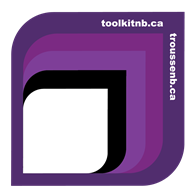

Every worker has a right to a healthy and safe workplace, one that protects them from injury, illness and wage loss. And a healthy and safe workplace must be a respectful one − free of violence and harassment. An amendment to General Regulation 91-191 of the Occupational Health and Safety Act, addressing workplace violence and harassment became effective April 1, 2019.
The changes protect New Brunswick’s workers from a wider range of hazards and require all provincial workplaces to develop a code of practice to prevent workplace harassment. Every New Brunswick employer must also conduct a risk assessment for violence and, based on certain criteria, may also be required to develop a code of practice to prevent violence at the workplace.
The following resources will help you understand what your workplace needs to know to comply with the regulation.
Developing Workplace Violence and Harassment Codes of Practice
There are two things that all employers in the province, regardless of size or nature of work, are required to do:
If you do not offer services* specified in the regulation and have fewer than 20 employees regularly employed in the province, you must still complete a risk assessment for violence at your workplace. If the risk assessment finds there is a risk for violence, you must establish a code of practice on violence.
*Specified services:
As with all new legislation, WorkSafeNB takes a phased approach to compliance and enforcement. Health and safety officers have discretion when issuing orders and are advised to do so where appropriate. This could include setting the date by which the employer must comply with the order(s). When doing so an officer will consider the magnitude of work needed to comply. Any order can be appealed to the chief compliance officer within 14 days. The chief compliance officer’s decision can be appealed to the Workers’ Compensation Appeals Tribunal (WCAT).
For industries like construction, where work can be happening in various locations, the employer can develop a generic risk assessment and code of practice that reflects most projects. Once at the worksite, the employer can then review and amend the risk assessment (in consultation with the JHSC, health and safety representative or employees) to determine if changes are necessary and, if yes, modify the generic code of practice.
Workplace Violence Toolkit for Nursing Homes
Commentary: Workplace law reforms overdue
It’s your Business- A domestic & Intimate Partner Violence Workplace Toolkit
Presentation: It’s your Business- A domestic & Intimate Partner Violence Workplace Toolkit
Support Services for Victims of Abuse
Remote Work and Domestic and Intimate Partner Violence
Video
Bullying and Harassment in Construction
Domestic and Intimate Partner Violence Workplace Toolkit
When domestic or intimate partner violence (DIPV) enters the workplace, everyone feels the negative consequences. By taking action through policies, practices, public education and good corporate citizenship, your workplace will be modeling values that show concern and respect for the individual. By supporting employees dealing with the impacts of DIPV in the workplace, you will be creating a safe, respectful and healthy environment.
